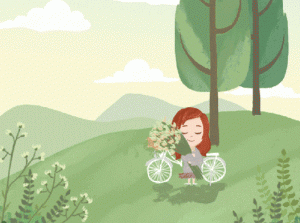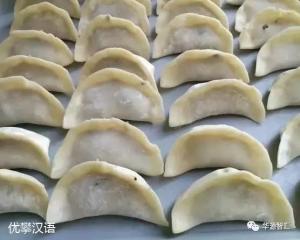The second day of February of the Chinese lunar calendar is the day when the dragon looks up, called “Dragon Heads-raising Day”. This year, it falls on March 8th.
On February 2, the dragon looked up and the child was going to shave his head.

Praise the gods to pray for good weather and good harvest.

The three months of spring are the seasons in which all things in nature recover, and all kinds of creatures are thriving.

On the second day of February, the dumplings must be a combination of meat and vegetables. Meat and vegetables are equal to riches.

The Longtaitou Festival (simplified Chinese: 龙抬头; traditional Chinese: 龍抬頭; pinyin: Lóng Táitóu), also known as the Eryue’er Festival(二月二), is a traditional Chinese festival held on the second day of the second month of the Chinese calendar. The festival is a reflection of the ancient agrarian Chinese culture. In the tradition of Chinese culture, the dragon is believed to be the king of all creatures and the ancestor of human beings. It is also believed to be in charge of bringing rains, and both of these are important factors in ancient agricultural society.
The traditional China calendar (officially known as the Rural Calendar [農曆; 农历; Nónglì; ‘farming calendar’]), or Former Calendar (舊曆; 旧历; Jiùlì), Traditional Calendar (老曆; 老历; Lǎolì) or Lunar Calendar (陰曆; 阴历; Yīnlì; ‘yin calendar’), is a lunisolar calendar which reckons years, months and days according to astronomical phenomena.
Corresponding to the solar calendar in astronomy, it refers to the calendar that is mainly arranged according to the moon phase of the moon; it is not according to the orbital position of the earth around the sun. It has 12 lunar months in a year, about 354 or 355 days. Mainly according to the moon around the earth for a week, called the moon, about 29.530588 days, divided into 30 months, 29 months.
24 solar terms:
冬至(Winter Solstice)、小寒(Minor Cold)、大寒(Major Cold)、立春(Start of Spring)、雨水(Rain Water )、惊蛰(Awakening of Insects)、春分(Spring Equinox)、清明(Clear and Bright)、谷雨(Grain Rain)、立夏(Start of Summer)、小满(Grain Buds)、芒种(Grain in Ear)、夏至(Summer Solstice)、小暑(Minor Heat)、大暑(Major Heat)、立秋(Start of Autumn)、处暑(End of Heat)、白露(White Dew)、秋分(Autumn Equinox)、寒露(Cold Dew)、霜降(Frost’s Descent)、立冬(Start of Winter)、小雪(Minor Snow)、大雪(Major Snow)
If you want to know more about Chinese culture, contact us to use the Chinese software!